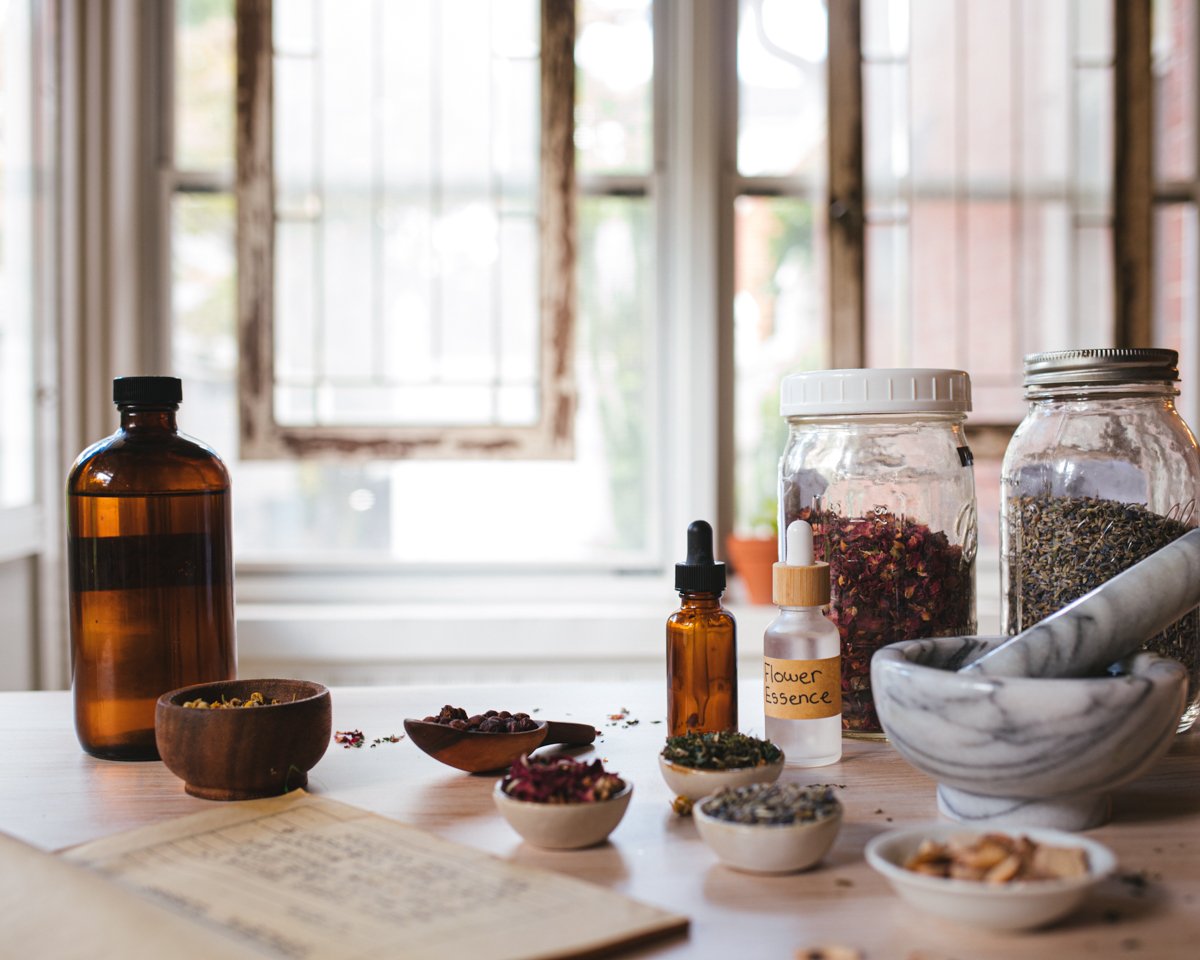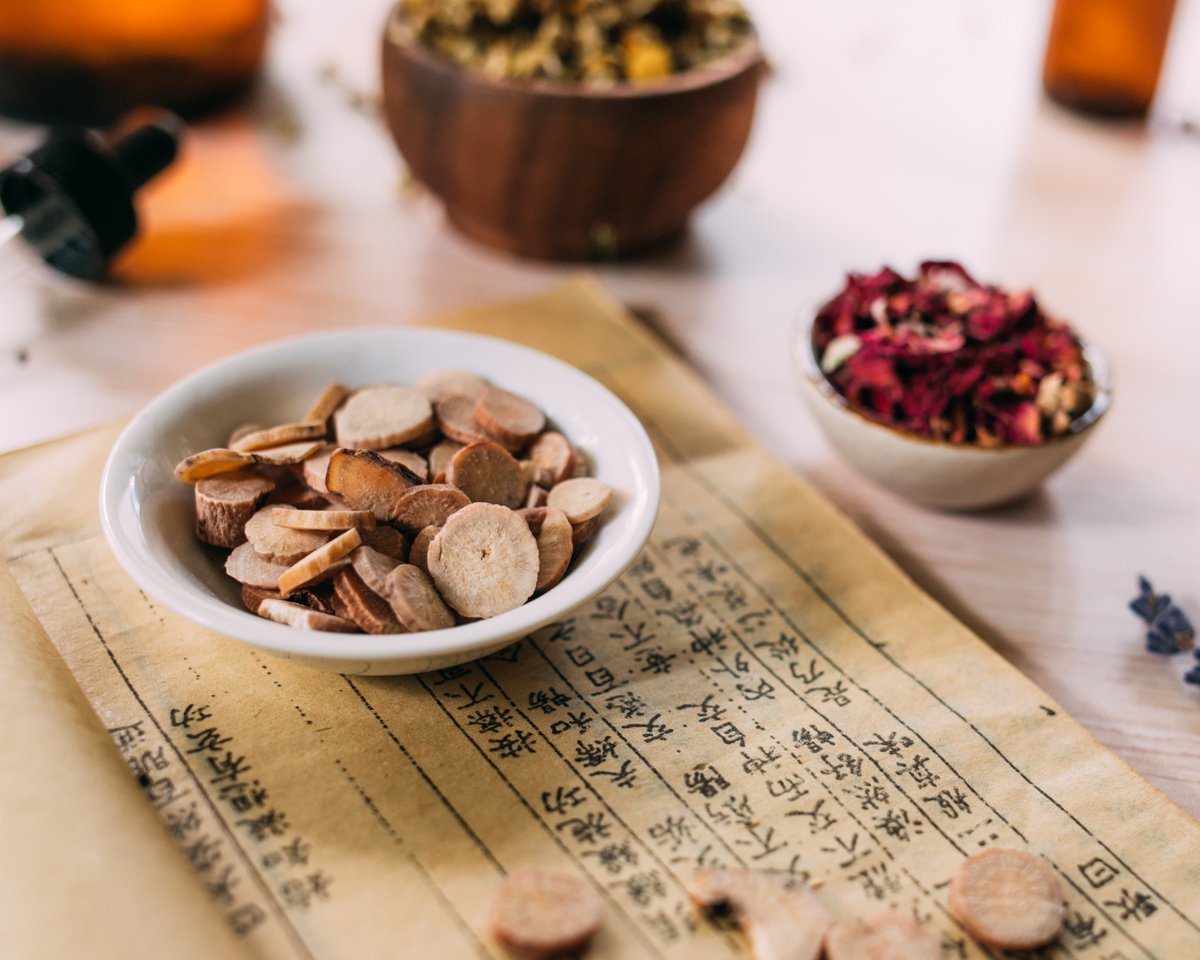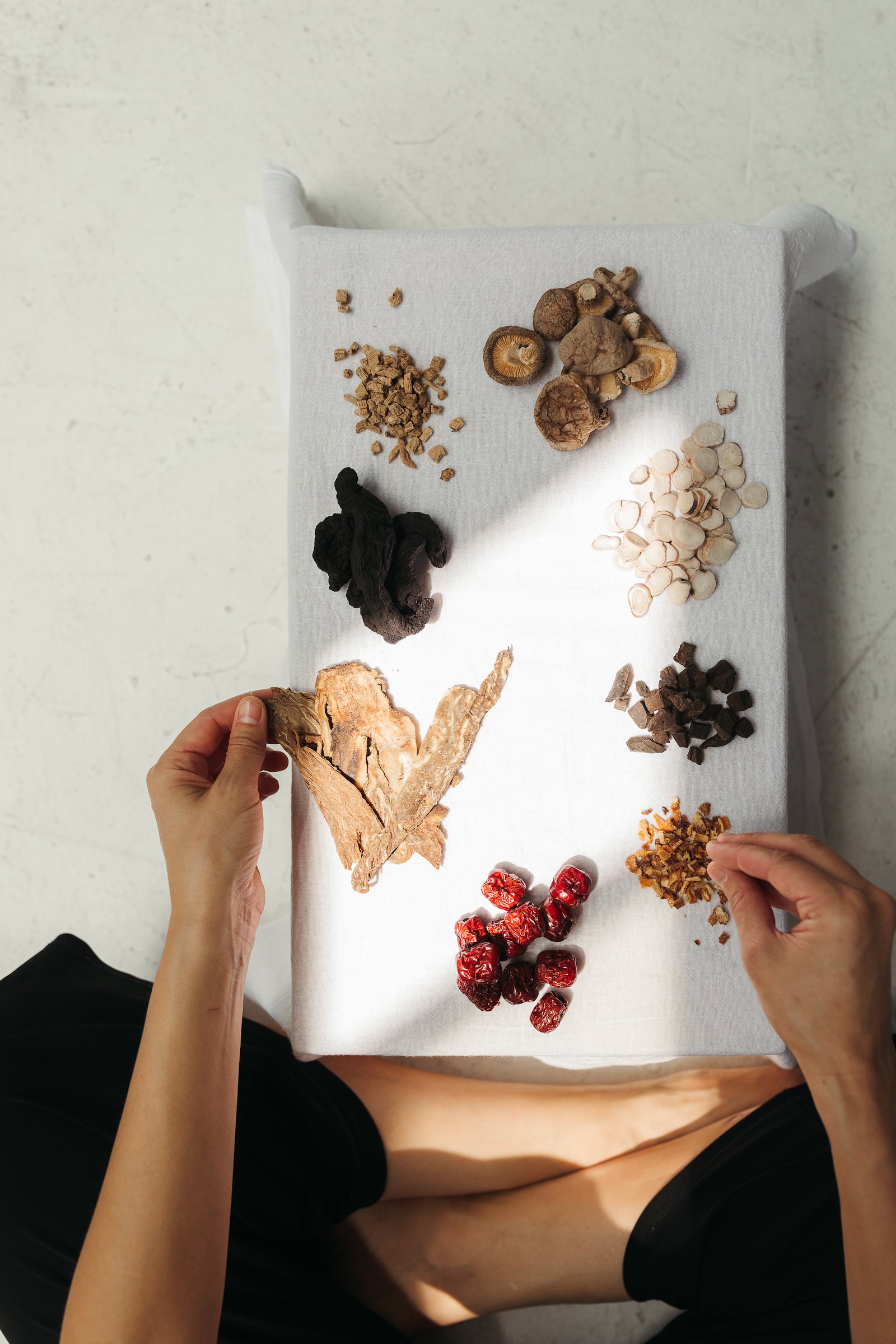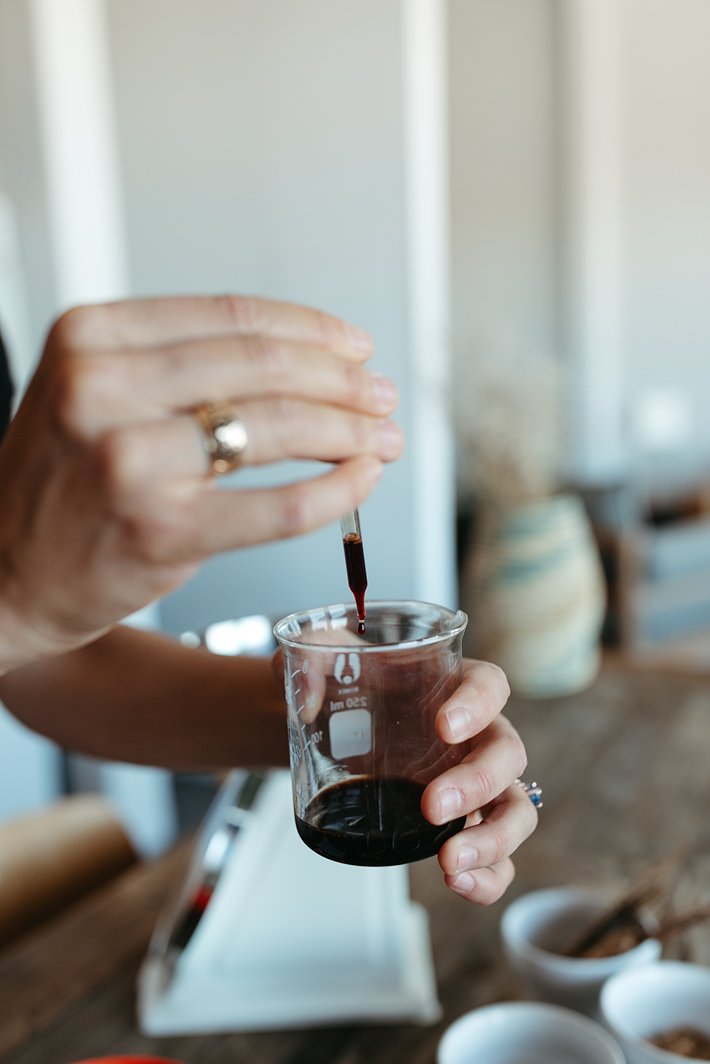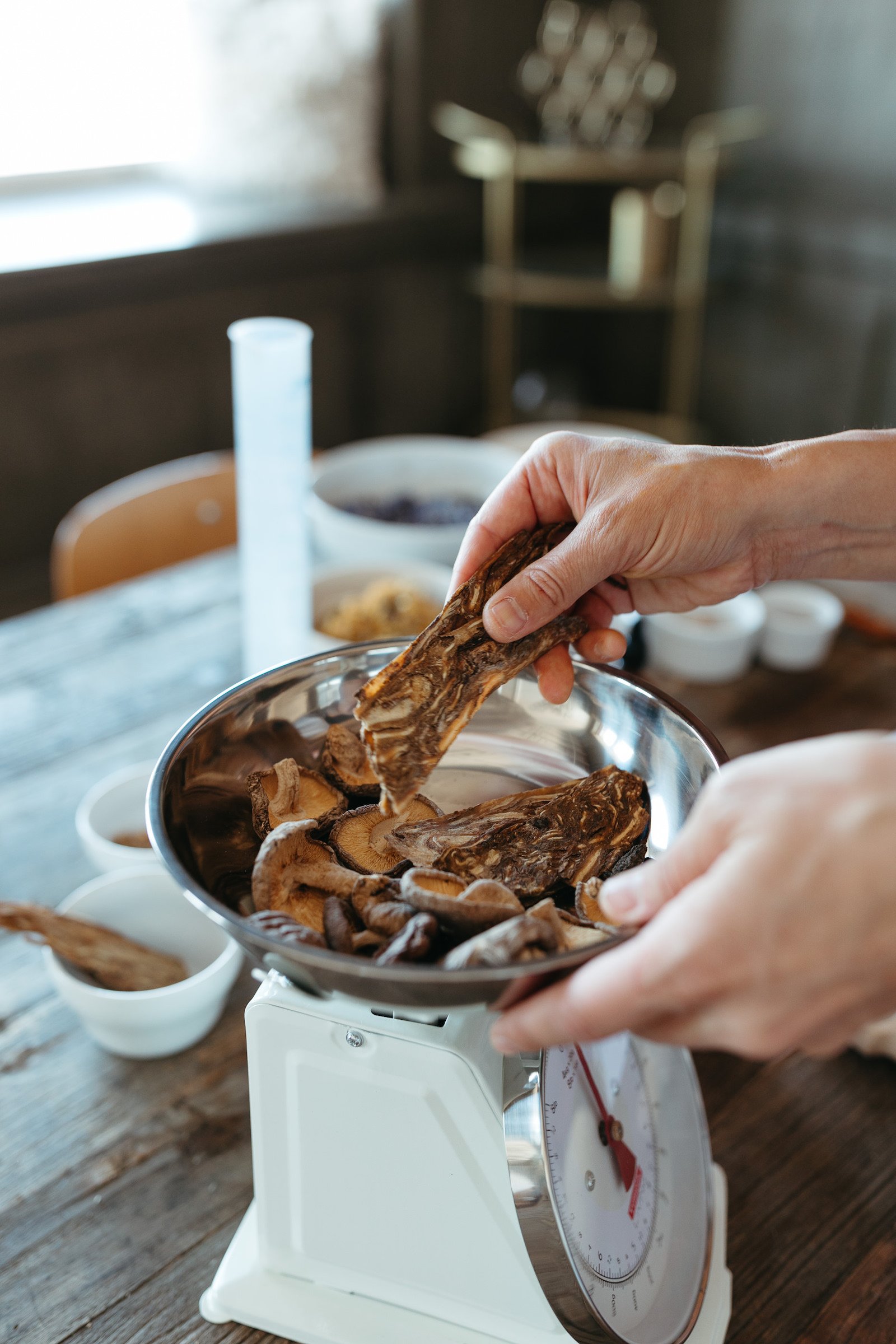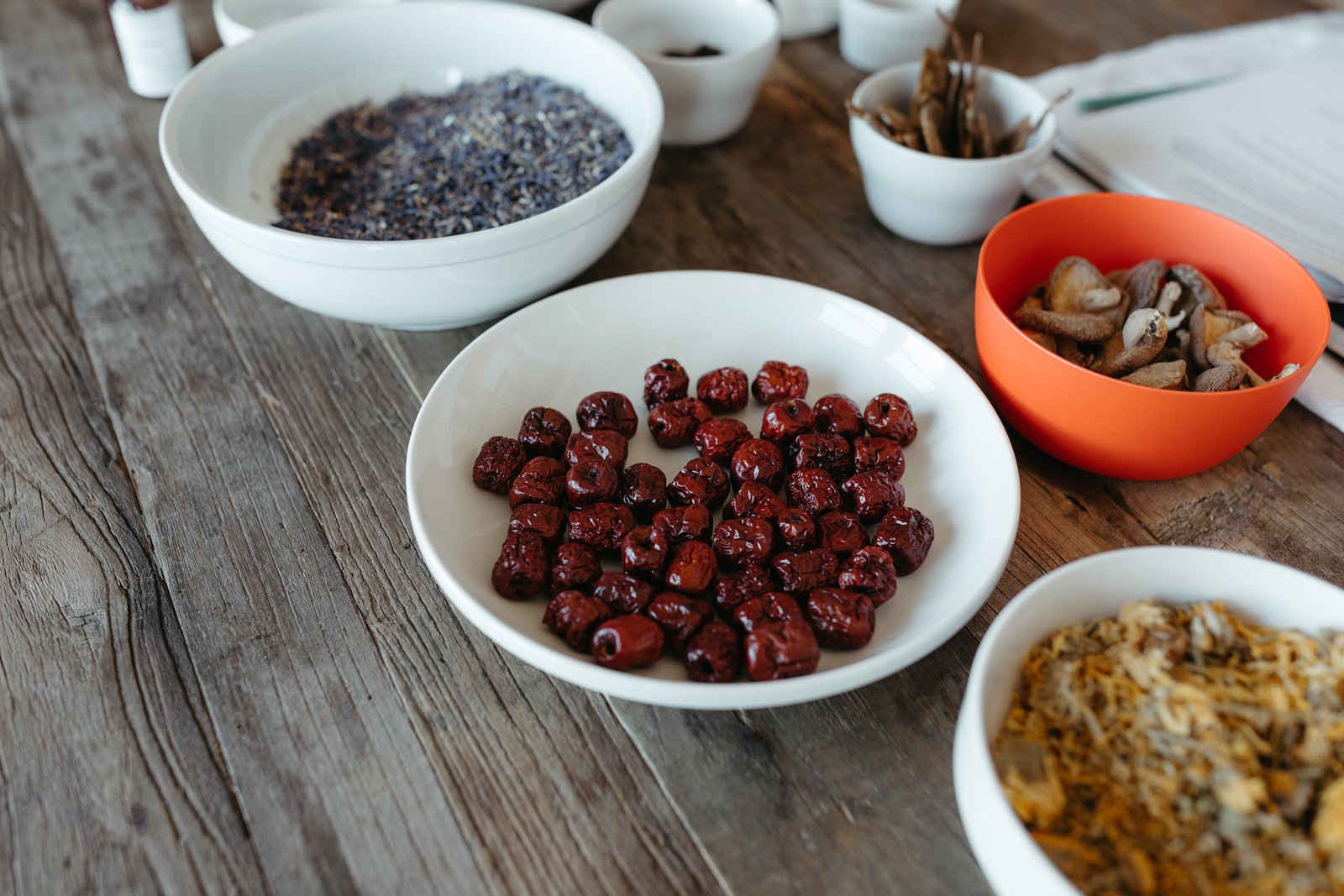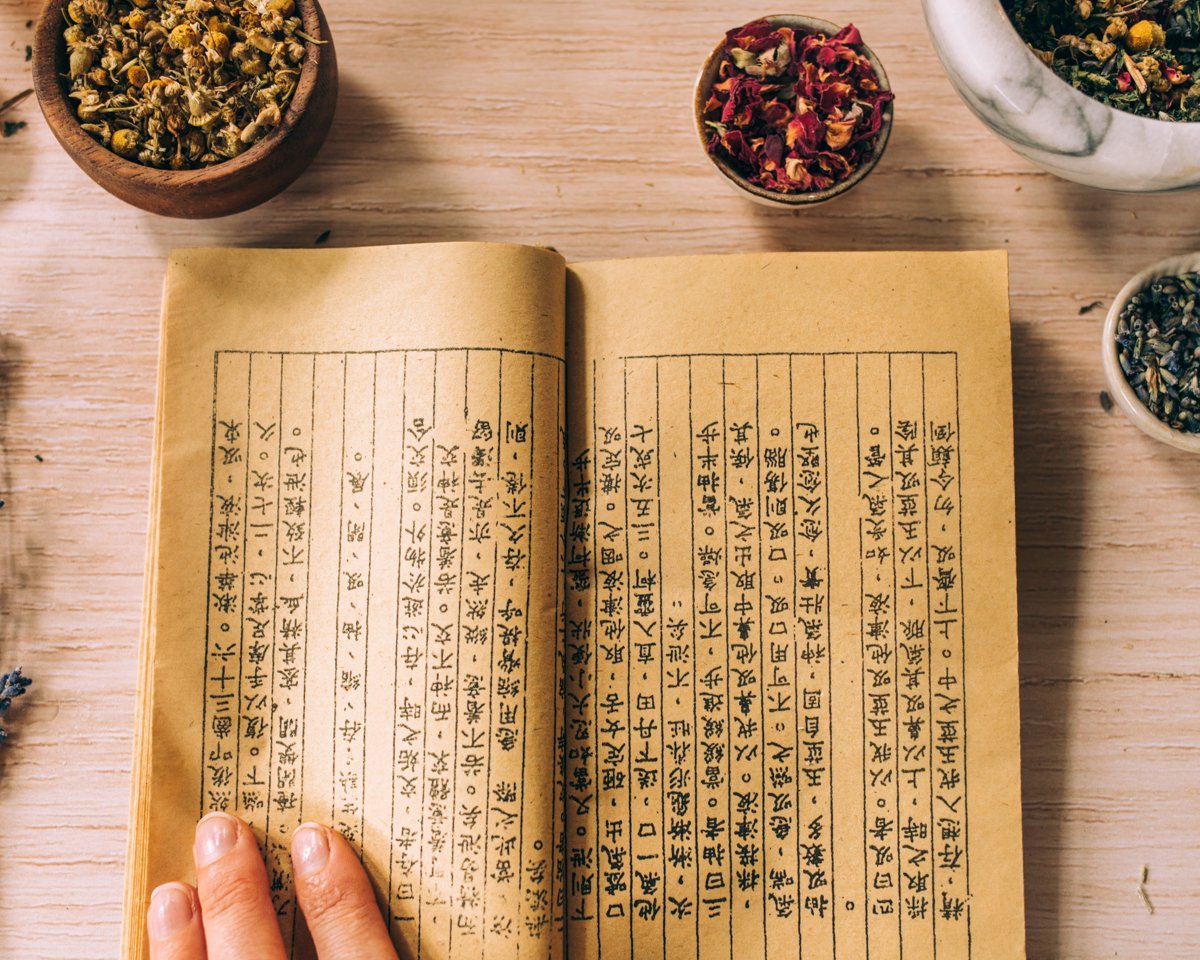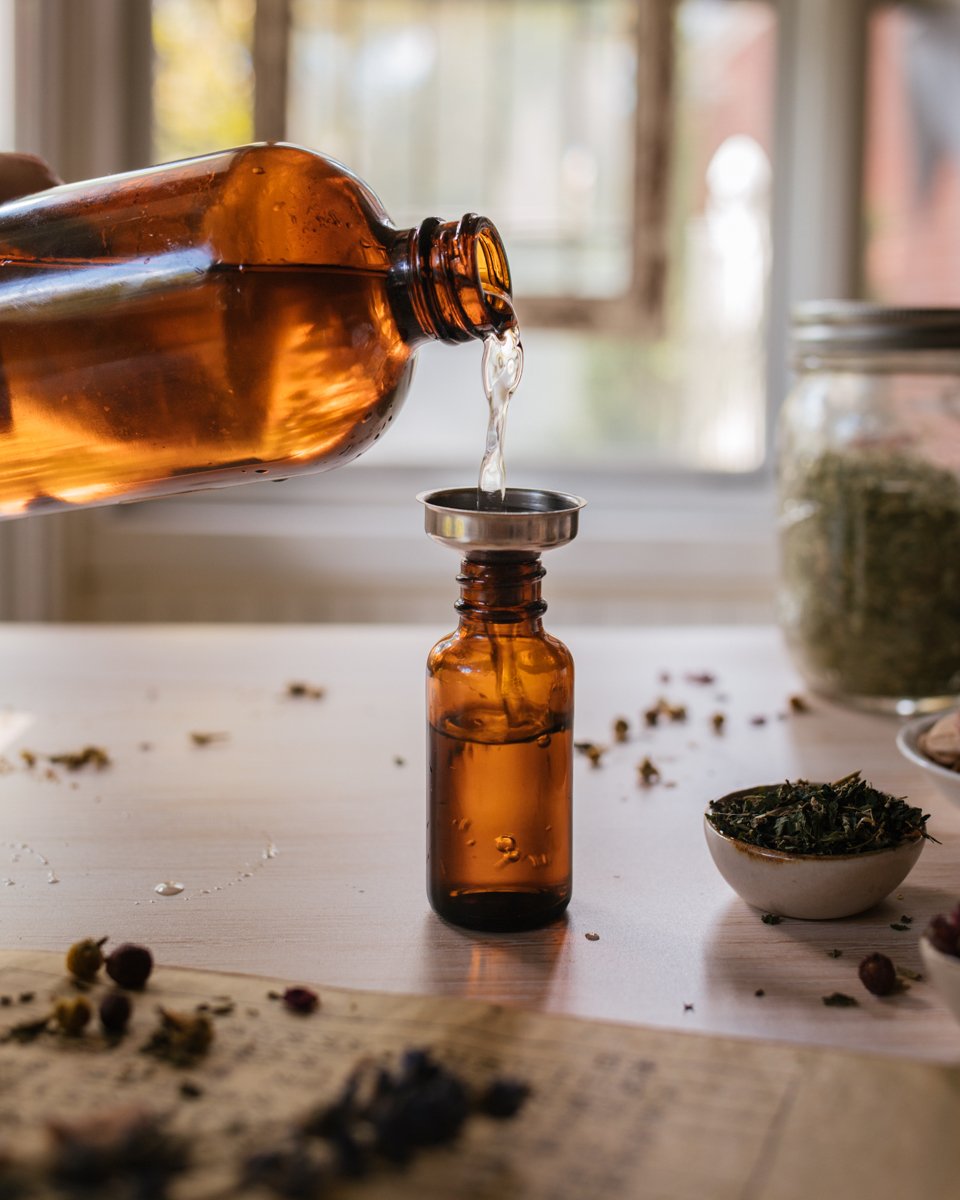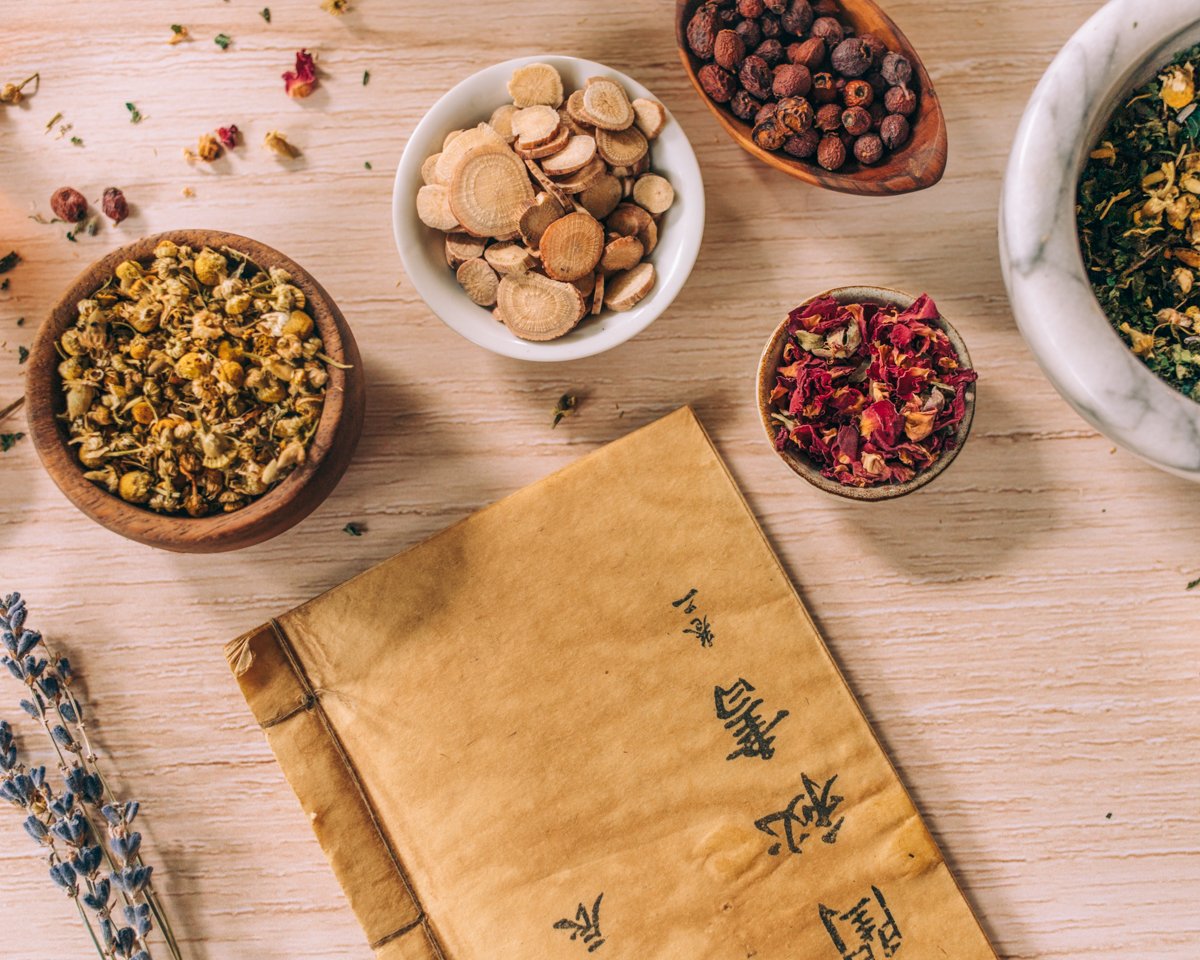The Necessity of Personalized Supplements in Herbal Medicine
Accessing herbs from around the world has become simpler than ever thanks to the internet, but each person’s body reacts to each herb differently. Just because an herb is trending or it works for someone you know, doesn’t mean it will work the same way for you. With that in mind, personalized supplements and botanical medicines that are custom-blended by a professional herbalist who assessed you, your health history, and your unique body type will almost always offer the best results.
The Art of Formulation
Mixing various herbs into a custom blend is called “formulation,” and it’s a medicinal art form that’s been used for millennia. Through the art of formulation, an herbalist can better target the issues surrounding an acute or chronic disease, and they can then tailor the blend to work best for your unique health presentations.
Medical herbalists can formulate all sorts of different products, from tinctures and teas to custom capsules, therapeutic infused oils, and honeys, all based on what you’re most comfortable with and most likely to integrate into your daily wellness routine.
The art of formulation always takes a custom approach. Traditionally, a main herb takes the stage to focus on the underlying, leading health issue at hand. This herb, called the primary herb, will have an action that addresses the root cause of the issue. In the formula, it will be the largest quantity. Since an illness can affect the body in more ways than one, the personalized supplement will also contain supportive or secondary herbs based on the other issues you may be experiencing, like indigestion or restlessness. Where Western clinical herbalism typically uses 4-7 herbs in a formula, Traditional Chinese Medicine is renowned for using 10-20 herbs in each formula.
Constitution: Everyone is Unique
One very important detail that a clinical herbalist will always keep in mind when creating personalized supplements is the patient’s constitution. According to Traditional Chinese Medicine (TCM), every human body has a different constitution from hot and cold, to dry and moist. For example, someone with a damp/moist constitution may sweat profusely and often feel the need to expel excess phlegm. When formulating a custom blend for this person, the trained clinical herbalist would make sure not to choose herbs that exacerbate this state - instead seeking drying herbs that bring balance. (This is an oversimplification of the process, but hopefully gives a little bit of helpful insight into what it means to formulate with a person’s constitution in mind!).
Just like we humans have constitutions, herbs also have unique energies and act in specific ways. For example, the herb peppermint (Mentha spp.) is cooling, as you’ve likely experienced after taking a sip of peppermint tea on a hot summer day, and the herb cayenne pepper (Capsicum anuum) is warming. These herbs are common examples that are easy to identify based on taste and feel, but many herbs are more nuanced. It’s taken thousands of years of direct observation and close study for herbalists and healers to identify where each herb falls on this energetic spectrum.
On a personal note, it can take years to understand the properties of each herb - and the many ways to identify a person’s unique constitution - which is why we always recommend working with a trained medical herbalist before introducing any new herbs to your wellness routine. Herbs can be stronger than pharmaceuticals and can create more harm than benefit when used incorrectly.
Traditional Chinese medicine prides itself on identifying imbalances in the human body by investigation into the pulse, tongue, nails, eyes, smell of a client, and energetic vitality before recommending any herbal protocol.
(If you’re interested in learning more about how to identify constitution or health imbalances - check out our online course, Tongue, Pulse, and Nail Diagnosis.)
Sourcing Quality Herbs
Another benefit of receiving customized herbal formulas at the Wildflower Clinic is that all our ingredients are high-quality and expertly vetted. Herbs vary drastically in quality depending on how they were grown, dried, shipped, and stored. Some larger companies value quantity over quality due to the increasing demand for herbs. While wild, foraged herbs carry potent, rich, and therapeutic phytochemicals from their evolution in nature, there are also many herbs on the market that have been sprayed with pesticides or harvested in an unsustainable manner. It’s always best to do your research before purchasing herbs and to choose USDA organic options whenever possible.
Trendy, “buzz-word” herbs, like echinacea and various adaptogens, such as ashwagandha, can be especially difficult to sustainably source because of their high demand. If a company needs to fulfill demand quickly, they’re less likely to source a quality product. Some of the marketing information about these “buzz-word herbs” may also be misleading due to a company's priorities to generate a high profit over the health of their consumers.
At The Wildflower Clinic, we carry more than 300 herbs, 70% of which are wildcrafted here in Colorado, while the remaining herbs are received from ethical wildcrafting partners across the US and internationally. This approach ensures that we’re able to give the highest quality personalized supplements to those seeking therapeutic assistance, while also ensuring the health of wild species - and the communities that rely on them - for years to come.
A Holistic Approach
At Wildflower Clinic, we use an integrated Western and Eastern medicine approach so each client is able to receive holistic care in a clinical setting. For example, we draw on influence from Eastern medicine through the practice of tongue, pulse, and nail diagnostics while using the combination of both the Traditional Chinese and Western clinical approach of plant medicine for preventative and active care.
After a 1-on-1 health consultation, our lead practitioner, Dana Hutchinson, carefully and thoughtfully curates personalized herbal remedies for individuals seeking additional support on their journey toward optimal wellness. We often recommend that our clients pair their botanical and supplemental protocols with gentle movement, like qigong or therapeutic touch treatments, like reiki, for optimal benefits. The aim of this approach is to guarantee that a patient is receiving the most effective care that they need in order to target their foundational issues and reinvigorate life force within the body. Ensuring that our patients feel comfortable, safe, and aware is part of the mission at Wildflower Clinic, as trust is just as important as the care being received.
Bringing it all Together: A Sample Formula
When formulating an herbal tea, tincture, capsule, or other product, your clinical herbalist will take great care to understand your constitution, wellness concerns, and health history before creating a custom blend with the herbs best suited to you.
For example:
A client dealing with an emotional imbalance that presents with anxiety symptoms, heart palpitations, and insomnia may be given an herbal tincture that could consist of the following herbs:
Emotional Support Tincture
Sample Blend:
30 ml Hawthorn berry (Crataegus monogyna)
20 ml Linden flower (Tilia europaea)
20 ml Chinese peony root (Bai Shao)
20 ml Pedicularis (Pedicularis racemosa)
10 ml Jujube date (Zizyphus jujuba)
5 ml Orange peel (ChenPi)
5 ml Cinnamon chip (Cinnamomum verum)
5 ml Devil's Claw (Harpagophytum procumbens)
5 ml Ocotillo (Fouquieria splendens)
+ 4 drops Prairie Coneflower Flower Essence
+ 4 drops Wild Oat Flower Essence
+ 4 drops Pine Needle Essence
Total: 120 ML
Dose: 3 ML AM + 3 ML PM
Of course, there are many case factors that would influence the herbal choices for a particular formula including: functional lab work, TCM diagnosis, genetic history, emotional presentation, energetic presentation, constitution, and a physical Qi assessment. Most tangible shifts with herbal medicine are felt within 4 weeks of taking the medicines. For chronic imbalances, autoimmunity, infertility, or severe emotional imbalances, protocols are usually administered for a minimum of 6 months.
In Closing,
Sometimes an issue may not be what it seems. Our bodies are intricate, and diagnosing an issue involves taking the physical, mental, and spiritual systems into account. It’s a multi-faceted, holistic process where an incorrect approach can have undesired effects. Receiving personalized supplements and custom investigation into your health case from an experienced practitioner will open doors to understanding and managing your health issues so you can feel as though you are safely taking the proper steps to heal yourself.
If you have questions about how personalized supplementation or herbal remedies can aid you, we would love to talk to you about it. You can reach Dana at dana@wildflowerclinic.com, or schedule a consultation to see how we can support you going forward. Our clinic specializes in autoimmunity, fertility, and emotional trauma amongst a wide variety of other health imbalances. We look forward to connecting with you!
Sources
Wood, M. (2017). The Book of Herbal Wisdom: Using Plants as Medicines. United States: North Atlantic Books.

